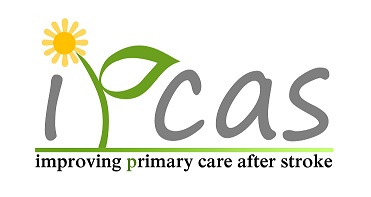Uncategorised
How home blood pressure testing could reduce strokes
Listen to Professor Jonathan Mant discuss ‘How home blood pressure testing could reduce strokes’ on a Naked Scientists podcast, recorded in 2018
Reference: McManus RJ, Mant J, Franssen M, Nickless A, Schwartz C, Hodgkinson J, Bradburn P, Farmer A, Grant S, Greenfield SM, Heneghan C, Jowett S, Martin U, Milner S, Monahan M, Mort S, Ogburn E, Perera-Salazar R, Shah SA, Yu LM, Tarassenko L, Hobbs FDR; TASMINH4 investigators. Efficacy of self-monitored blood pressure, with or without telemonitoring, for titration of antihypertensive medication (TASMINH4): an unmasked randomised controlled trial. Lancet. 2018 Feb 27. pii: S0140-6736(18)30309-X
https://www.sciencedirect.com/science/article/pii/S014067361830309X
Paper published in BMC Family Practice
A paper focusing on using a checklist to facilitate management of long-term care needs after stroke has just been published in BMC Family Practice. This paper uses insights from focus groups and a feasibility study. It was concluded that the checklist is a potentially valuable tool to structure stroke reviews using a patient-centred approach.
A link to the full paper can be found here.
Could you be an MLAS Facilitator?
We are currently searching for people to join our team of MLAS Facilitators who could cover areas in Northamptonshire, Essex and Suffolk. If you have excellent organisation, time management and a passion for helping others this role may be for you.
MLAS (“My Life After Stroke”) is a self-management programme for stroke survivors and their carers. The course is one component of a new model of primary care services for stroke currently being tested in a clinical trial organised by researchers at the University of Cambridge.
The role of an MLAS Facilitator is to help deliver individual and group sessions for stroke survivors and their carers. As an MLAS facilitator you will be paid for your time and receive specialist training. You do not need to be clinically trained to become a facilitator. If you would like to become a facilitator you will be asked to attend 3 days of specialist training in January in Cambridge. You may also be asked to ensure that your core skills such as Manual Handling and Basic Life Support are up-to-date if you do not already have these.
If you would like to find out more about the MLAS programme or you are interested in becoming an MLAS facilitator please contact us at ipcas@medschl.cam.ac.uk or check out the links below to find out more details:
A systematic review protocol, accepted for publication by BMJ Open
We are pleased to announce that the article entitled: “Understanding stroke survivors’ and informal carers’ experiences of and need for primary care and community health services—a systematic review of the qualitative literature: protocol” has now been accepted for publication by BMJ Open. This article was written by N A Aziz, D M Pindus, R Mullis, F M Walter and J Mant.
The article discusses a proposed systematic review which aims to synthesise and appraise extant qualitative evidence on: (1) long-term healthcare needs of stroke survivors and informal carers, and (2) their experiences of primary care and community health services.
Please find the full article published here.
